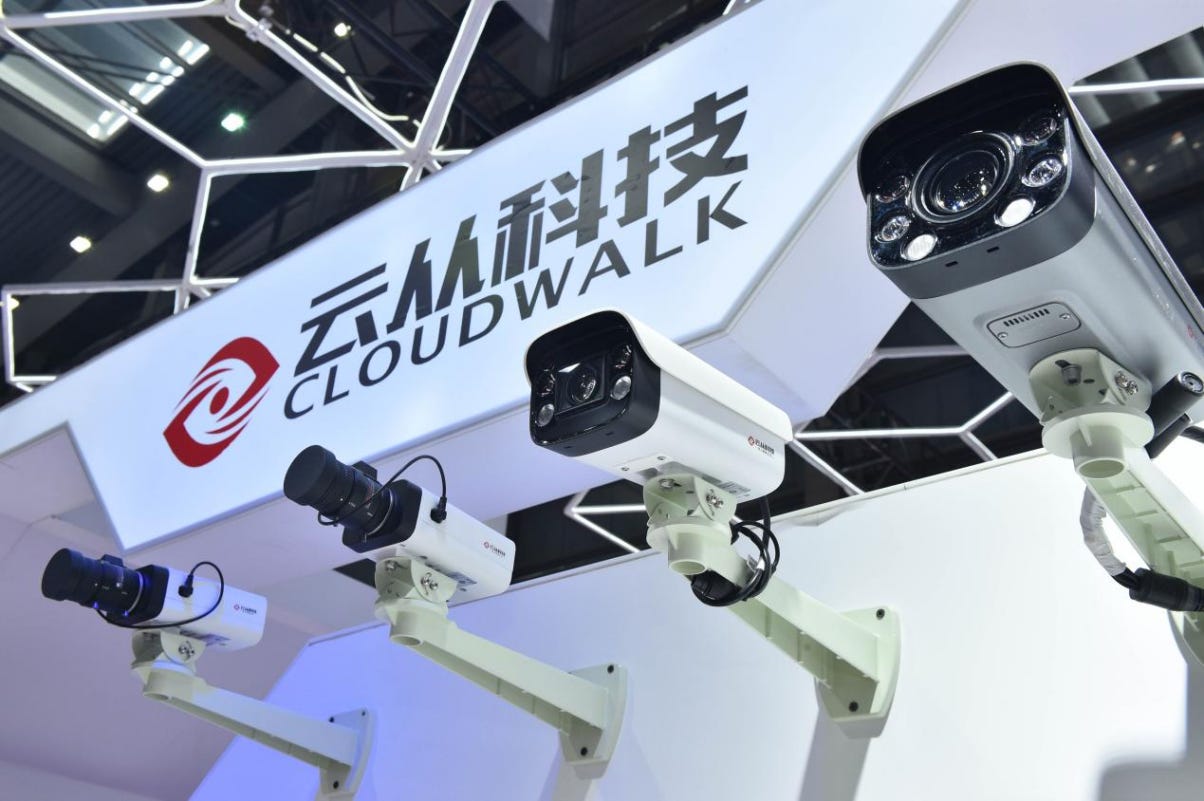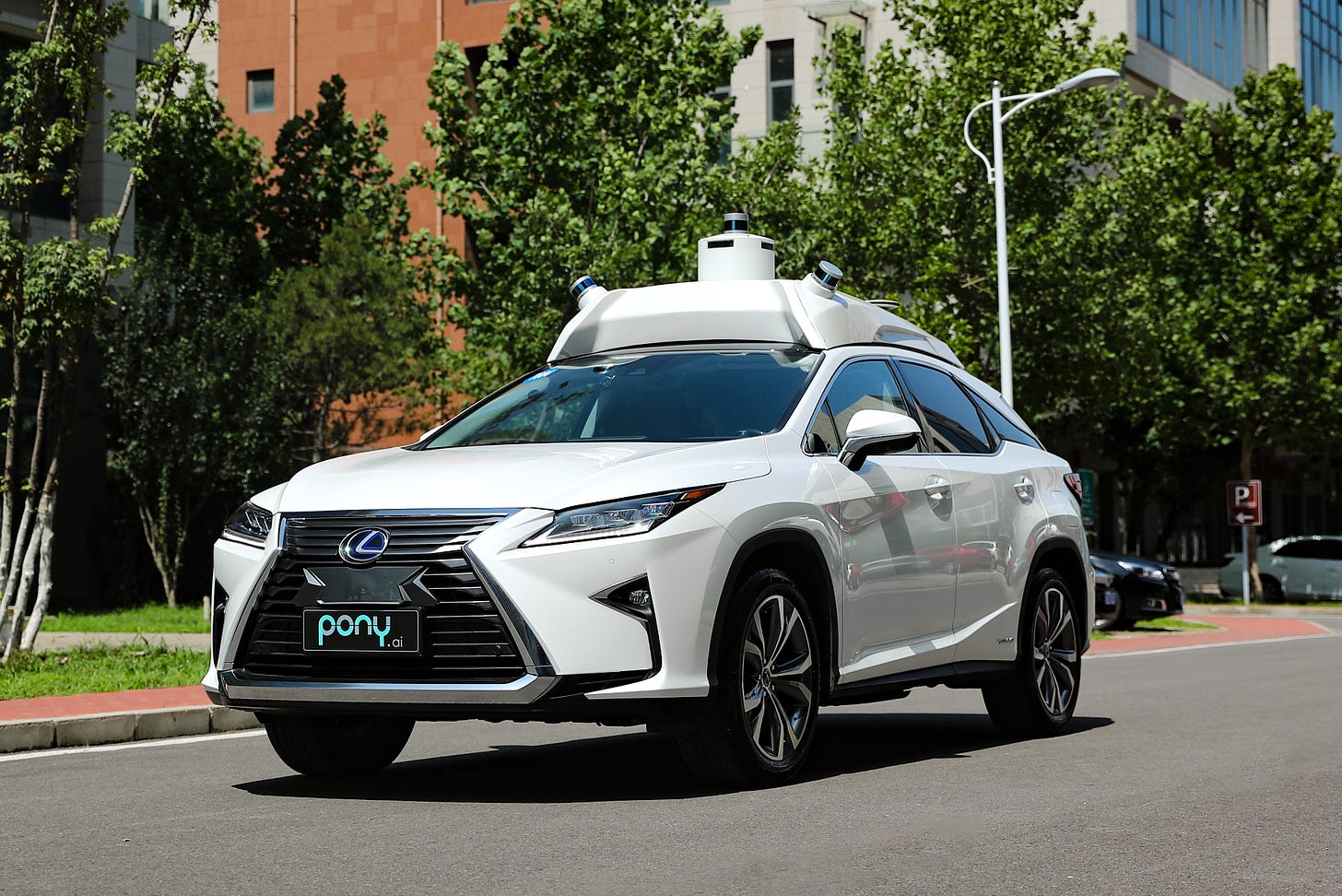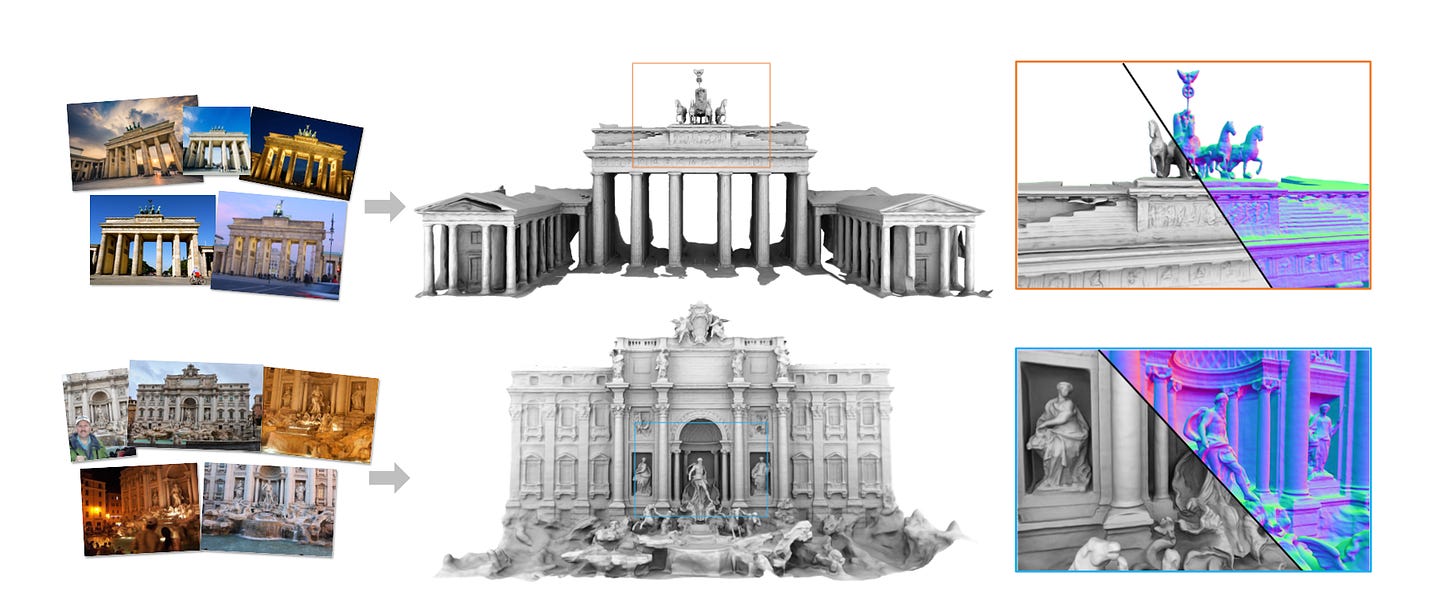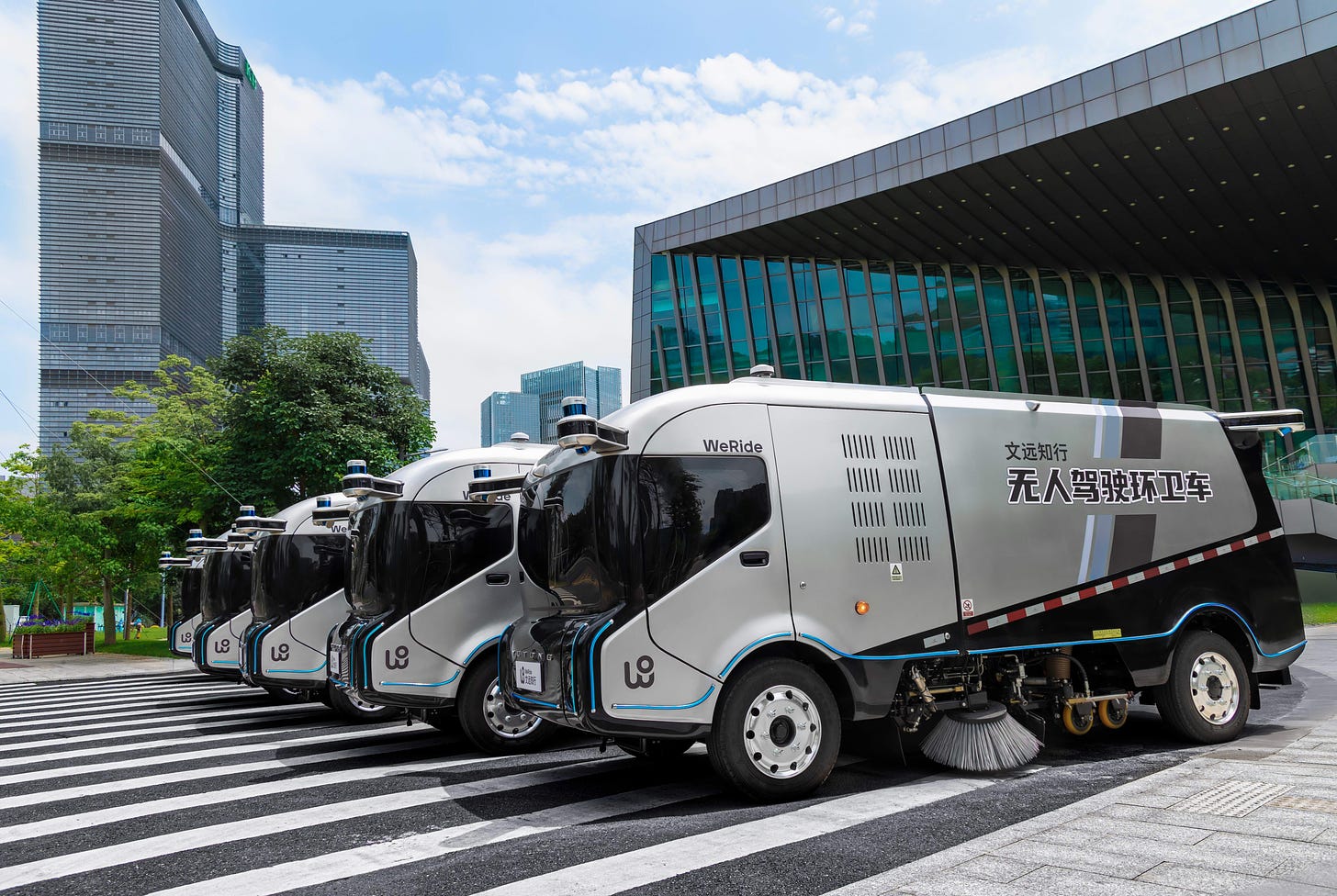US-Banned AI Firm Surges on IPO; Pony.ai Loses Autonomous Driving Test Permits in CA; AI Reconstructs 3D Tourism Attractions from Internet Photos
Weekly China AI News from May 23 to May 29
News of the Week
State-Back AI Firm CloudWalk Jumps 60% on Market Debut
What’s new: Chinese facial tech developer CloudWalk Tech surged in its market debut after raising significantly lower-than-expected funding through public offerings. Shares jumped almost 60% and closed with a gain of 40% at 21.4 RMB on China’s Nasdaq-like Shanghai STAR market.
Who’s CloudWalk: A spinoff of the Chinese Academy of Sciences (CAS), CloudWalk was founded in 2015 specializing in computer vision and machine learning. The company’s mission is to promote the intelligent transformation of various industries, including governance, finance, transport, and smart business. The company reported its annual revenue of 1.076 billion RMB in 2021, with a net loss of 632 million RMB.
More context: Despite a rewarding market debut, CloudWalk projected its IPO funding to reach RMB3.7 billion but ended with only RMB1.73 billion bagged into its pocket. Its market value of RMB16 billion RMB is also lower than its estimated valuation of RMB23 billion in its last pre-IPO funding round.
Toyota-Backed Pony.ai Loses Autonomous Vehicle Test Permits in California
What’s new: The California DMV surprisingly revoked the permits of Pony.ai to test autonomous vehicles (AVs) with safety drivers due to “numerous violations on the driving records of active Pony.ai safety drivers”, TechCrunch reported. Pony.ai has been removed from the list of testing permit holders on the California DMV website, Recode China AI confirmed.
Why? The California DMV had concerns over three of Pony.ai's safety drivers’ records reviewing Pony.ai’s application to renew the testing permit. “Because of the critical role of safety drivers to facilitate the safe testing of autonomous technology and the need for these drivers to have a clean driving record as established by the DMV’s autonomous vehicle regulations, the DMV is revoking the permit, effective immediately,” a DMV spokesperson said.
Driverless permits suspended: Last November, the California DMV also suspended Pony.ai’s driverless AV permits, which allow autonomous vehicles to test without human operators, after a reported collision in Fremont, California.
Shanghai Vows to Support AI Enterprises with 65 Billion Loan
What’s new: Shanghai unveiled a series of policies and economic supports to help embattled local AI enterprises as the city aims to ease lockdown and revitalize its damaged high-tech industry.
Five state-owned banks will jointly provide a total credit line of 65 billion RMB to help artificial intelligence enterprises in Shanghai resume work and production. The news was announced in a virtual event hosted by the Shanghai AI Industry Association under the guidance of the Shanghai Municipal Commission of Economy and Informatization.
The measure is part of Shanghai’s 50 measures aimed at stabilizing the city’s economy damaged by the strict 2-month Covid-19 lockdown. Other supports include tax rebates and infrastructure construction projects. All new measures together with policies issued in March will reduce the burden for entities by 300 billion RMB ($44.8 billion) this year.
Top AI companies in Shanghai: Shanghai is home to some Chinese leading AI companies, including computer vision giant SenseTime, medical robot company TMiRob, and AI chip and healthcare startup Yitu.
Paper & Projects
ByteDance Introduces SOTA Cover Song Identification
Researchers from Bytedance AI Lab and the University of California San Diego proposed an upgraded version of ByteCover, termed ByteCover2, which further improves ByteCover in both identification performance and efficiency. Compared with ByteCover, ByteCover2 is designed with an additional PCA-FC module, which integrates the capability of principal component analysis (PCA) and a fully connected (FC) neural network for dimensionality reduction of the audio embedding, allowing ByteCover2 to perform CSI in a more precise and efficient way. ByteCover2 beat all the compared methods including ByteCover, even with a dimension size of 128, which is 15 times smaller than that of ByteCover.
AI Reconstructs 3D Tourism Attractions from Internet Photos
Researchers from Zhejiang University, Cornell University, and Image Derivative introduced a new method that enables efficient and accurate surface reconstruction from Internet photo collections in the presence of varying illumination. In the paper Neural 3D Reconstruction in the Wild, they proposed a hybrid voxel- and surface-guided sampling technique that allows for more efficient ray sampling around surfaces and leads to significant improvements in reconstruction quality. They performed extensive experiments, demonstrating that our approach surpasses both classical and neural reconstruction methods on a wide variety of metrics. The paper has been accepted at SIGGRAPH 2022. Learn more and watch the demo at https://zju3dv.github.io/neuralrecon-w/.
OpenPrompt: An Open-source Framework for Prompt-learning
Prompt-learning has become a new paradigm in modern natural language processing, which directly adapts pre-trained language models (PLMs) to cloze-style prediction, autoregressive modeling, or sequence to sequence generation, resulting in promising performances on various tasks. Researchers from Tsinghua University presented OpenPrompt, a unified easy-to-use toolkit to conduct prompt learning over PLMs. OpenPrompt is a research-friendly framework that is equipped with efficiency, modularity, and extendibility, and its combinability allows the freedom to combine different PLMs, task formats, and prompting modules in a unified paradigm. Users could expediently deploy prompt-learning frameworks and evaluate the generalization of them on different NLP tasks without constraints. The paper won the Best Demo Paper at ACL 2022.
Rising Startups
WeRide.ai, a smart mobility company with L4 autonomous driving technology, has announced a strategic investment received from automotive supplier giant Bosch. The two parties have signed a strategic cooperation agreement and will jointly develop autonomous driving (AD) software. This cooperation will accelerate the process of developing Bosch China’s advanced driving solution, moving SAE Level 2-3 AD towards mass production. Founded in 2017, the Guangzhou-based AV company offers robotaxis, mini robobuses, robovans, and robo-street sweepers.
Angstrong Tech, a 3D sensing and smart hardware solution provider, has raised over 100 million RMB in its Series B funding round. Founded in 2018, the Shenzhen-based company provides 3D sensing solutions for mobile phones, tablets, PCs, security, surveillance, financial service industry, and AR/VR.
Learnable.ai, a human-centered artificial intelligence company, has raised over 100 million RMB in its Series A funding round. Founded in 2016, the Boston-Beijing-based company uses state-of-the-art and innovative deep reinforcement learning techniques to develop effective AI solutions that can solve complex challenges encountered across a wide variety of industries, including automated grading for education, and smart anti-fraud systems for finance.








